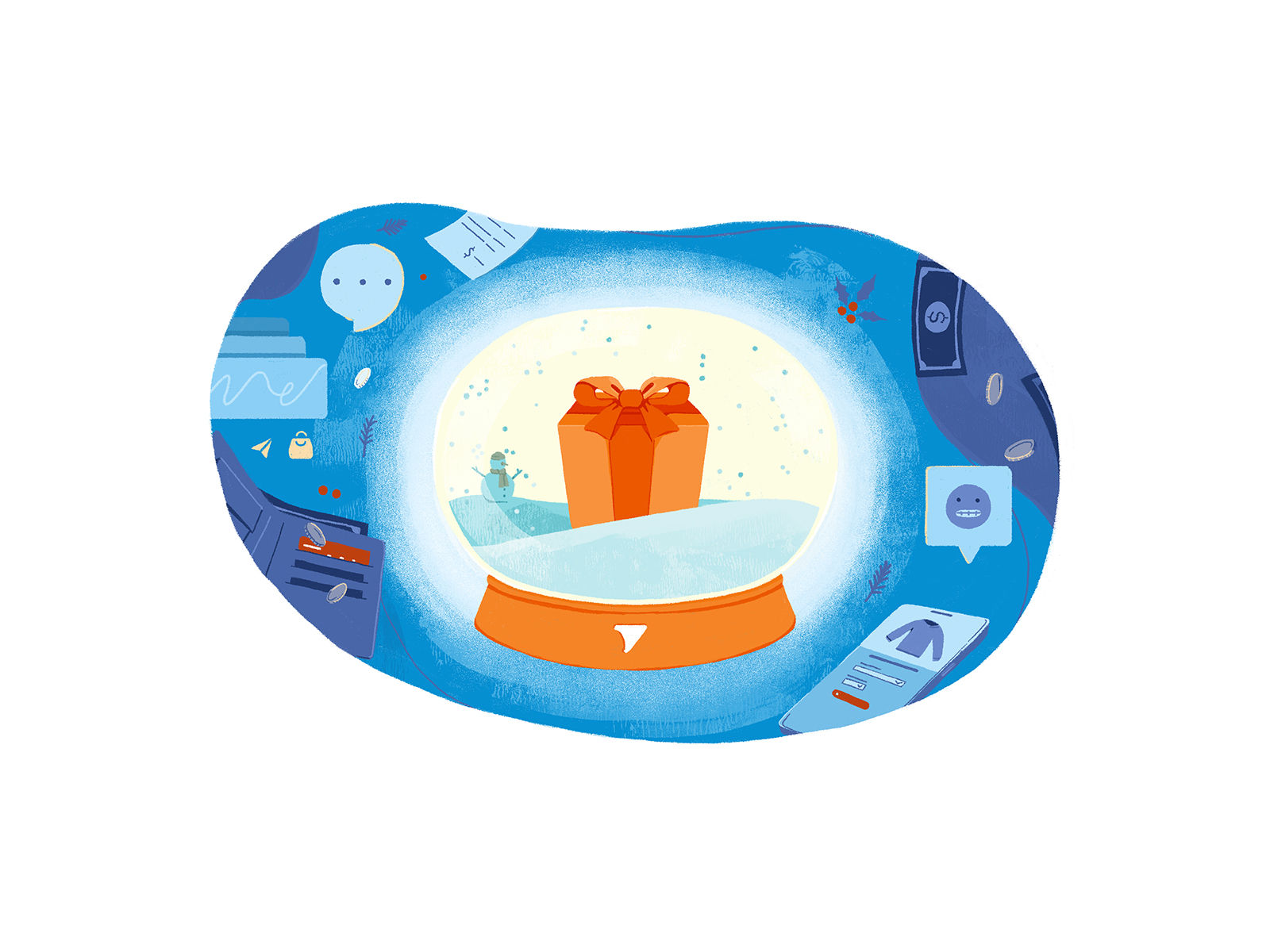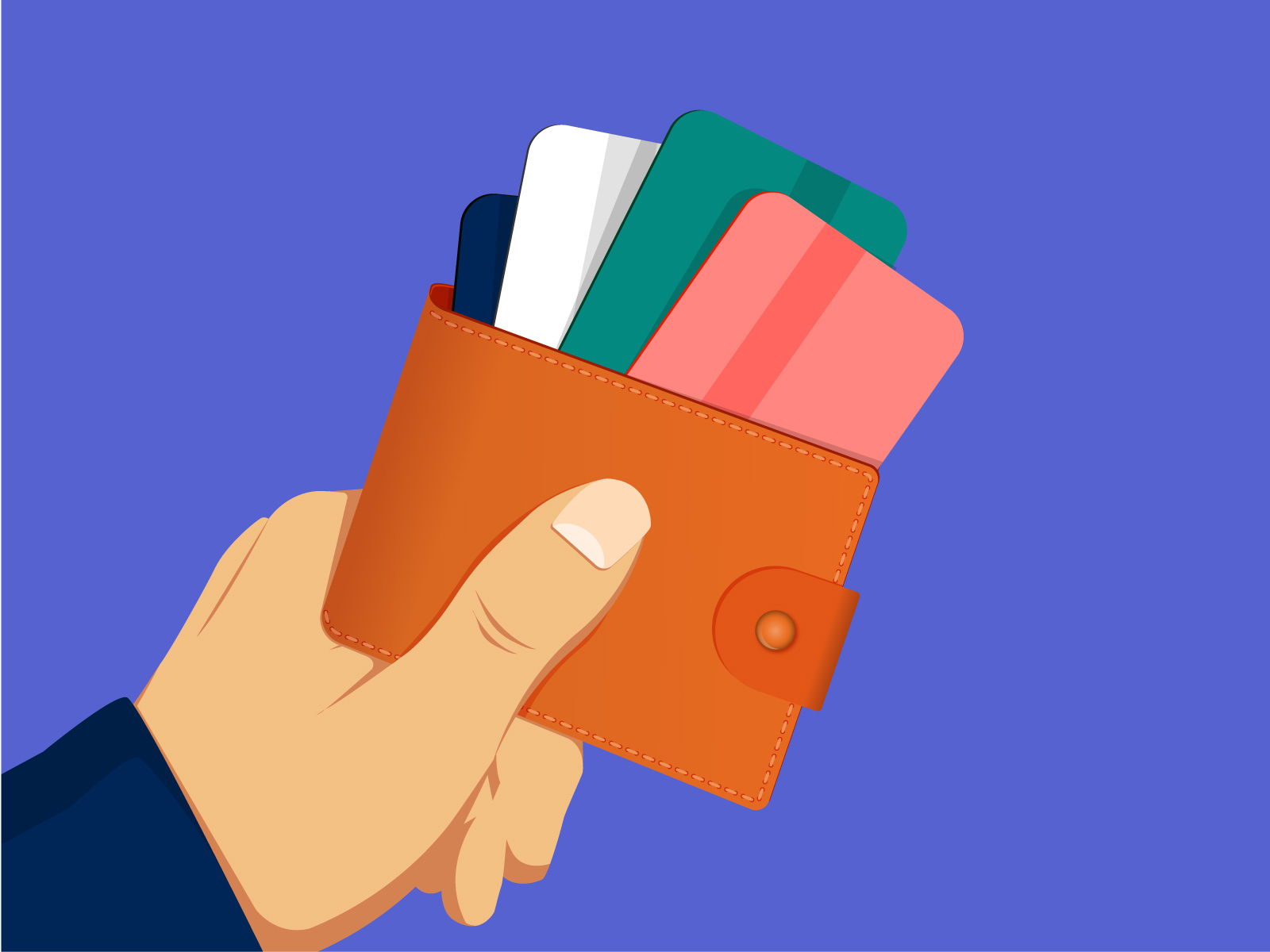How to avoid a holiday debt shock
The holidays are fast approaching — which for many means family, feasts, ugly sweaters, and, let's face it, a lot of spending.
In a typical year, many of us expect to overspend to please everyone on our lists. But nowadays, in addition to the usual shopping temptations, there are other pitfalls to be aware of, thanks to innovations in social media and financial technology that can boost the "FOMO" (Fear of Missing Out) factor and make spending money more fun, but also dangerously easy.
What are the warning signs and the ensuing dangers? More importantly, how can you avoid these pitfalls in the first place, spend within your means this holiday season and avoid a debt headache in the new year? Read on, and spend with caution.
Buy now pay later
While shopping online for holiday gifts, you're increasingly likely to see the option to “Buy Now Pay Later," thanks to "BNPL" companies like AfterPay and PayBright, which work with many online retailers. Perhaps you like the idea of spreading out your payments over, say, four instalments, especially if cash flow is tight around the holidays.
BNPL is becoming more popular with Canadian consumers because of their ease and convenience. According to a 2021 survey from the Financial Consumer Agency of Canada, those 18-34 were most likely to have used BPNL services.
The trap
Before you commit to what some have called "Buy Now Pain Later," it's best to understand how these offers work.
If you pay according to a fixed, scheduled, pre-authorized debit model and pay everything off according to schedule, your purchase is usually interest-free. But what happens if you miss a payment? With some services, it could result in interest and fees.
About a third of BNPL users have admitted to making a late payment, and 72% said their credit score fell. If you damage your credit score, your borrowing costs may become higher in the future. Also, prospective landlords or employers may check your credit score as an indication of financial responsibility (or lack thereof).
Shannon Lee Simmons, a financial planner and founder of The New School of Finance, warns that "instalment services can encourage consumers to let their spending get ahead of their income."
The fix
When you start owing money before you even get paid, you're playing a dangerous game. Instead, try to change your habits and save up for expensive purchases, paying for them using cash or a debit card. If you charge a purchase on your credit card, try to make sure you have the funds to pay it off in full on the due date.
Social commerce
Many of us like to scroll through social media apps, often drawn to posts that include products our friends or, celebrities and influencers we follow are wearing or using. The FOMO is already strong on social media. Even when you're supposed to be looking for holiday gifts for friends and family, you may be tempted to spend on yourself to keep up with the online pressure to “live your best life."
The trap
The temptations are only getting stronger. Social commerce, the process of selling products directly on social media, is a growing retail frontier. TikTok introduced a collaboration with Shopify and Square to connect brands with consumers who spend time on the app. It follows on the heels of Facebook Shops, the seamless platform used on Facebook and Instagram to "inspire" people to shop easily online. Social commerce combines all the temptations of online shopping with peer pressure and can result in unnecessary spending and, eventually, buyer's remorse.
The fix
Adam Alter, a psychology and marketing professor and the author of Irresistible, The Rise of Addictive Technology and the Business of Keeping Us Hooked, says, "The best thing we can do is to spend some part of every day as far away from tech as possible. Decide that you won't use screens from, say, 5 [p.m.] to 8 p.m. every day." Put your device away or set it at "do not disturb" for the duration.
He also suggests you ask yourself if your device is pushing you to spend too much money on in-game purchases or when using apps, whether it's getting in the way of your health or your ability to work efficiently. If it is, consider adding more friction back into the buying process, like disabling one-click payments. This feature lets you bypass the normal process of reviewing the items in your virtual shopping cart before committing to a purchase.
Another major trend in online shopping is dynamic pricing, where prices are continually adjusted based on several factors, including supply and demand — and two consumers may be offered different price tags for the same item. One possible solution? Browse in "incognito mode," which creates a "private browser session that can foil the dynamic-pricing technology."
Lastly, stop "comparing and despairing" by curating your social feeds in a more positive way to see posts about places you've travelled or artists you've seen in concert — stories that make you happy rather than envious of others.
Sneaky subscriptions
Subscription services have boomed since the pandemic hit. Many of us now subscribe to multiple monthly services for gaming, music, TV and movies, podcasts, meal boxes, razors, and fitness, to name a few. Plus, meditation apps, socks, and pizza, to name a few more.
Most subscriptions come with a fairly low monthly fee, but even low fees start to add up if you have enough of them. Most people have at least two to three subscriptions, but there's a growing trend of "power subscribers" with 10 or more recurring payments.
The trap
After opting in here and there, your monthly expenses may have slowly ballooned, leaving you with less cash for holiday shopping this year. "Subscription creep" is sneaky, and you may no longer be using some of the products or services you're subscribed to each month. According to personal finance expert Preet Banerjee, inertia sets in and "we're too lazy or too busy to notice all the expenses we have that we don't use efficiently, or at all." Watch out for free trials as well—after they expire, a paid subscription might kick in.
The fix
To lower your monthly expenses, try conducting a subscription audit, deciding which subscriptions to keep, noting the associated costs, and which ones to cancel for lack of use. Banerjee advises, "If you can find one hour in the next week, many people can find hundreds of dollars in annual savings without feeling much of an impact on their lifestyle." These savings can be put towards your holiday shopping budget or towards other goals.
Avoid overspending traps by spending creatively
There are other ways to avoid a debt headache in the new year. Here are some ideas:
- Make a detailed gift list for family members and assign a reasonable budget to each gift.
- Redeem credit card rewards or use gift cards to help pay for some of the gifts on your list.
- Make small donations to a community charity instead of tangible gifts.
- Do a "Secret Santa" for coworkers instead of individual gifts, with a spending cap of $20.
You can stay on track to save for your other goals by not overspending on holiday shopping.


